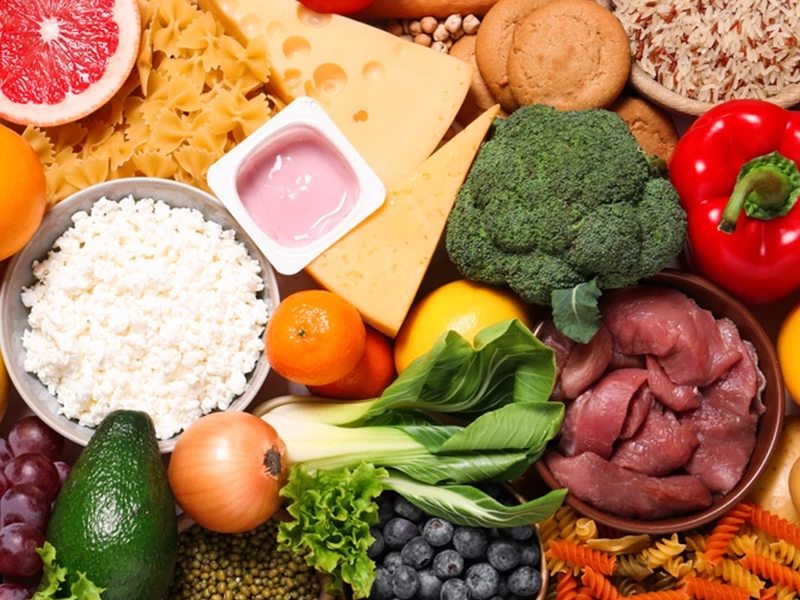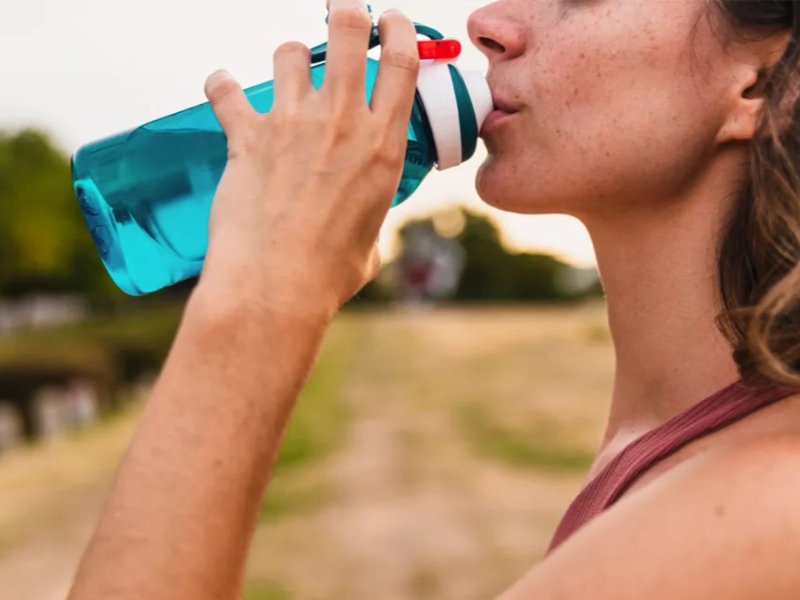One problem that many people face frequently is fatigue. It can be caused by a variety of things, including stress, lack of sleep, and unhealthy eating habits. However, fatigue can also be a sign of a more serious medical problem. Instead of drinking coffee or sugary energy drinks, consider these natural remedies to boost your energy and get a pep in your step: 1. Drink plenty of water.

 Our bodies use the food we eat for fuel, which plays a big role in how energetic we feel. Maintaining a diet low in sugar, processed foods, and bad fats can help you maintain high energy levels.
Including a variety of foods in your diet is also important to ensure you're getting enough nutrients. Make sure you eat a full range of nutrient-dense foods, such as fruits, vegetables, nuts, seeds, fish, poultry, lean meats, and eggs.
To keep your energy levels steady, try to include protein-rich foods in every meal. Yogurt with berries and an ounce of almond or peanut butter on whole-grain crackers make a nutritious snack. Additionally, consider adding a teaspoon of cinnamon to your meals, as it helps balance blood sugar levels.
Our bodies use the food we eat for fuel, which plays a big role in how energetic we feel. Maintaining a diet low in sugar, processed foods, and bad fats can help you maintain high energy levels.
Including a variety of foods in your diet is also important to ensure you're getting enough nutrients. Make sure you eat a full range of nutrient-dense foods, such as fruits, vegetables, nuts, seeds, fish, poultry, lean meats, and eggs.
To keep your energy levels steady, try to include protein-rich foods in every meal. Yogurt with berries and an ounce of almond or peanut butter on whole-grain crackers make a nutritious snack. Additionally, consider adding a teaspoon of cinnamon to your meals, as it helps balance blood sugar levels.
 Many people rely on coffee or energy drinks to give them a morning boost, but if they're leaving you feeling exhausted and sluggish throughout the day, it might be time to make some lifestyle adjustments.
Maintaining an exercise routine is crucial for boosting your energy levels because it delivers oxygen-rich blood to your heart and muscles, naturally boosting your energy levels. You don't have to be an extreme fitness fanatic to experience these benefits; even a quick "micro-workout" during your lunch break or a walk may help you feel more energetic.
The most effective way to increase your energy is usually aerobic exercise, but strength training has its benefits too. The best part is that working out can give you a boost of energy throughout the day.
Many people rely on coffee or energy drinks to give them a morning boost, but if they're leaving you feeling exhausted and sluggish throughout the day, it might be time to make some lifestyle adjustments.
Maintaining an exercise routine is crucial for boosting your energy levels because it delivers oxygen-rich blood to your heart and muscles, naturally boosting your energy levels. You don't have to be an extreme fitness fanatic to experience these benefits; even a quick "micro-workout" during your lunch break or a walk may help you feel more energetic.
The most effective way to increase your energy is usually aerobic exercise, but strength training has its benefits too. The best part is that working out can give you a boost of energy throughout the day.
 We often become dehydrated, which causes fatigue. Drinking enough water throughout the day can make us feel happier and more energized. The best option is water, but herbal teas and unsweetened fruit juices such as grapefruit, orange, strawberry and kiwi are also great sources of hydration. Drink when you are thirsty and follow your doctor's recommendations. On average, women need 9 glasses and men 13 glasses.
Increasing your physical activity can help you feel less tired and give you more energy. However, it's important to avoid overdoing it, as too much activity can make you feel even more tired. Limit exercise to gentle forms like yoga, tai chi, or walking.
We often become dehydrated, which causes fatigue. Drinking enough water throughout the day can make us feel happier and more energized. The best option is water, but herbal teas and unsweetened fruit juices such as grapefruit, orange, strawberry and kiwi are also great sources of hydration. Drink when you are thirsty and follow your doctor's recommendations. On average, women need 9 glasses and men 13 glasses.
Increasing your physical activity can help you feel less tired and give you more energy. However, it's important to avoid overdoing it, as too much activity can make you feel even more tired. Limit exercise to gentle forms like yoga, tai chi, or walking.
 Our sleep, food, drink and exercise habits all greatly impact the amount of energy we have. It's important to prioritise sleep and exercise, stay hydrated, avoid highly processed foods and sugary "energy" drinks, and eat the right foods to support your gut microbiome.
When choosing power snacks, you should aim for a combination of carbohydrates, protein and fat (such as yogurt with granola or peanut butter on whole grain crackers). These foods are digested slowly so they won't cause fatiguing blood sugar spikes. Another great addition to your diet is leafy greens, which are rich in potassium, vitamin B6 and complex carbohydrates. They're delicious in salads, sprinkled on cereal or mixed into smoothies. You can also boost your vitamin D levels by taking a supplement or getting more exposure to sunlight.
Our sleep, food, drink and exercise habits all greatly impact the amount of energy we have. It's important to prioritise sleep and exercise, stay hydrated, avoid highly processed foods and sugary "energy" drinks, and eat the right foods to support your gut microbiome.
When choosing power snacks, you should aim for a combination of carbohydrates, protein and fat (such as yogurt with granola or peanut butter on whole grain crackers). These foods are digested slowly so they won't cause fatiguing blood sugar spikes. Another great addition to your diet is leafy greens, which are rich in potassium, vitamin B6 and complex carbohydrates. They're delicious in salads, sprinkled on cereal or mixed into smoothies. You can also boost your vitamin D levels by taking a supplement or getting more exposure to sunlight.